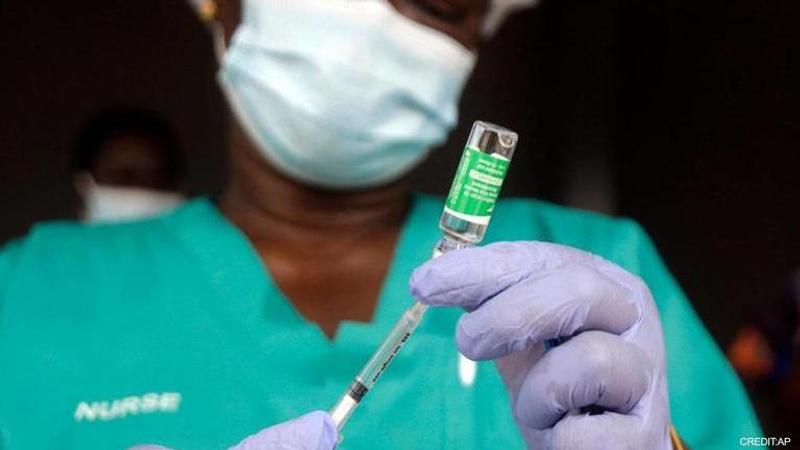Published 15:01 IST, July 14th 2021
EU says not all COVID vaccines equal, experts call it discriminatory
According to health professionals, the scenario will not only delay travel and irritate already-fragile economies, but it will also erode vaccination faith.

AstraZeneca, according to EU inspections, has not finished the paperwork for its Indian plant, which includes details on its production and quality standards.
A number of experts, however, claim that the EU's reasoning is discriminatory and unscientific because the factory was examined and certified by the WHO. It is predicted that this scenario will not only prolong travel and irritate fragile economies, but it also erode vaccination confidence by appearing to label some vaccines as substandard.
In order to save the summer tourism season, countries like Europe and other developed nations are loosening coronavirus border restrictions as vaccination coverage increases.
EU officials introduced the digital COVID-19 certificate earlier this month, allowing residents to freely move within the bloc if they have had a recently negative test, have been immunized with one of four shots authorised by the European Medicine Agency, or have proof of recent recovery.
While the United States and the United Kingdom remain mainly restricted to international visitors, the EU certificate is considered as a potential model for COVID-19 travel and a tool to stimulate economies.
Vaccines from Pfizer, Moderna, and Johnson & Johnson are among the officially EU-approved vaccines.
Despite being part of one union, each EU nation has its own laws governing visitors from outside and within, and these often differ greatly, further confusing tourists. In a few EU nations, such as Belgium, Germany, and Switzerland, people who have received non-EU-approved vaccines can enter, while others, such as France and Italy, don't.
Nsofor was shocked to learn of the possibility of being barred. His wife and two young daughters were eagerly anticipating a European trip after a difficult year working in Abuja during the pandemic. They were looking forward to seeing the Eiffel Tower in Paris or discovering Salzburg, Austria.
As per Nsofor, the vaccine he received was made in India and was provided by COVAX, a group with the backing of the United Nations that provides vaccines to impoverished populations across the globe. It was inspected by the WHO to ensure that the production methods and quality control criteria followed by Serum Institute of India were acceptable.
“We’re grateful to the EU that they funded COVAX, but now they are essentially discriminating against a vaccine that they actively funded and promoted,” Nsofor said. “This will just give room to all kinds of conspiracy theories that the vaccines we’re getting in Africa are not as good as the ones they have for themselves in the West.”
During COVID-19, Ivo Vlaev, a professor at the University of Warwick in the United Kingdom who advises the government on behavioural science, acknowledged that Western countries' failure to recognise vaccines used in developing countries may increase mistrust.
“People who were already suspicious of vaccines will become even more suspicious,” Vlaev said. “They could also lose trust in public health messages from governments and be less willing to comply with COVID rules.”
According to Dr. Mesfin Teklu Tessema, director of health for the International Rescue Committee, Countries who refuse to acknowledge vaccines cleared by WHO are going against scientific evidence.
“Vaccines that have met WHO’s threshold should be accepted. Otherwise it looks like there’s an element of racism here,” he said.
The World Health Organization has urged countries to accept all vaccines approved by it, including two developed in China. According to a statement released by the United Nations health agency, countries refusing to do so are reducing confidence in vaccines that have already been proven safe and effective, affecting vaccine uptake and potentially putting billions of people at risk.
EU's Issue with Covishield
Serum Institute of India CEO Adar Poonawalla tweeted in June that he was concerned about vaccinated Indians having difficulty traveling to the EU, and he was pressing the issue with authorities at the highest levels.
According to Stefan De Keersmaeker, a spokesperson for the European Commission's executive arm, an inspection of the factory's manufacturing process is required.
In the statement he said, "We are not trying to create any doubts about this vaccine."
AstraZeneca reports that the paperwork on the Indian manufacturing has just recently been submitted to the EU regulatory authorities. No explanation was given for the delay, which occurred before the agency's January decision.
In some European countries, particularly the United States, some vaccines made outside the EU are not recognized by some national authorities, despite the fact that their European equivalents are.
Gerard Araud, the former French ambassador to Israel, the United States, and the United Nations, tweeted this week about the nation's COVID-19 permit, which many persons who are vaccinated outside France deem to be a "disaster."
Global efforts to resume travel are being hindered by the refusal of countries to recognize WHO-backed vaccines.
“To exclude some people from certain countries because of the vaccine they’ve received is wholly inconsistent because we know that these approved vaccines are extremely protective.”
Neither Nsofor nor his wife have decided where they will spend their summer vacation, although they have considered Singapore or a trip to Africa.
“I didn’t realize there were so many layers to vaccine inequity,” he said.
“You can't cut countries off from the rest of the world indefinitely,” said University of Cambridge's Dr. Raghib Ali.
(with inputs from AP)
Updated 15:01 IST, July 14th 2021




